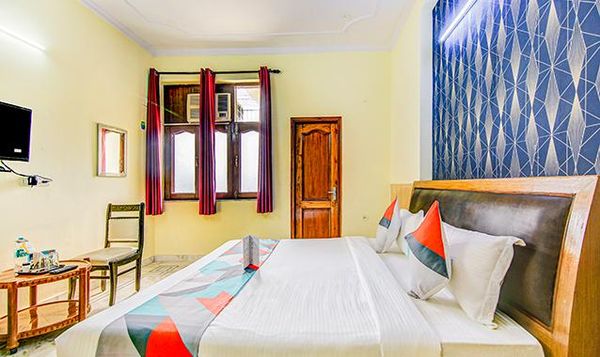How to Cancel a Credit Card the Right Way in India
 Richa Jain
21 Aug, 2025
11 mins read
20
Richa Jain
21 Aug, 2025
11 mins read
20

Whether you wish to switch to a better card, reduce debt, or avoid high annual fees, doing it the right way ensures a smooth closure.
Reasons People Cancel a Credit Card
A decision to close a credit card is usually influenced by personal, financial, or security considerations. Some of the most common reasons include:
High annual or renewal fees
When the cost of keeping a card outweighs the benefits it offers
Duplicate or overlapping features
Having multiple cards with similar benefits may not be necessary
Low utilisation
If a card remains unused for long periods, it can be better to close it to avoid maintenance costs
Better offers elsewhere
New cards with superior rewards, cashback, or lower interest rates may prompt a switch
Security and fraud concerns
If a card has been compromised or repeatedly targeted by scams, closing it can provide peace of mind
For example, a user may close a travel-focused credit card if they no longer travel frequently, thereby avoiding unnecessary annual fees.
Things to Check Before You Cancel a Credit Card
To cancel a credit card without preparation can lead to financial or credit score setbacks. Before you proceed:
Clear All Outstanding Balances
Ensure that all pending amounts, including the latest transactions, interest charges, and EMIs, are fully paid. Even a small unpaid balance can prevent closure.
Redeem All Reward Points
Many banks forfeit reward points immediately after account closure. Transfer them to a partner loyalty programme or redeem them for vouchers before requesting cancellation.
Update Auto-Pay Instructions
If the card is linked to recurring payments like OTT subscriptions, utility bills, or insurance premiums, update payment details to another card or bank account to avoid service interruptions.
Check for Linked Loans or EMI Plans
Cards with ongoing EMI conversions must be settled before closure. Some banks may require lump-sum payment of the remaining EMI amount.
Request the Final Statement
This helps verify all transactions are recorded and no pending debits remain after closure.
Step-by-Step Process to Cancel a Credit Card in India
The process to cancel credit card varies by issuer but typically follows these steps:
Contact the Card Issuer
Use the official customer care number, email, or visit the nearest branch to initiate your request. Always confirm you are speaking to an authorised representative.
Submit a Closure Request
Some issuers require a written application or online form, including your name, card number, and ID proof. Ensure you request acknowledgment of receipt.
Settle All Dues
Pay any remaining charges immediately. In some cases, the issuer may keep the account open until the payment reflects.
Destroy the Physical Card
Once the bank confirms account closure, cut through the magnetic strip and chip before disposal to prevent misuse.
Obtain Written Confirmation
Always keep an official closure letter or email for future reference. This document is crucial if the closed account later shows unexplained charges.
Common Mistakes to Avoid When Cancelling
- Closing your oldest credit card without considering its positive impact on your credit history length
- Ignoring small pending charges, which can accumulate interest and penalties
- Failing to check the final credit report to ensure the account is marked ‘Closed at customer’s request’
- Cancelling too many cards at once, which can reduce total available credit and affect your utilisation ratio
Impact on Your Credit Score and Financial Profile
Your credit score is influenced by factors like credit utilisation ratio, payment history, and account age. Closing a credit card can:
- Increase your utilisation ratio if the card had a significant unused limit, potentially lowering your score
- Reduce your average account age, especially if the cancelled card is one of your oldest accounts
- Impact future loan eligibility, as some lenders prefer applicants with a strong mix of open and well-managed accounts
If you plan to apply for a home loan, car loan, or personal loan soon, you may want to delay cancelling the card until after the application process.
Alternative Options Instead of Cancelling
Before finalising your decision, you may explore other solutions:
- Downgrade to a basic, no-fee card with the same issuer to maintain your credit history without paying annual fees
- Lower the credit limit to reduce spending temptation without closing the account
- Temporarily block the card if the concern is related to fraud risk, giving you the flexibility to reactivate later
If you are considering replacing your current card, financial marketplaces such as bajajfinservmarkets.in host multiple credit card issuers in one place, allowing you to compare features, fees, and benefits to choose the most suitable option.
Summary and Key Takeaways
Cancelling a credit card is a significant financial decision. To do it the right way:
- Settle all dues and redeem rewards before closure
- Update or cancel auto-payments linked to the card
- Always obtain written confirmation and check your credit report
Written By:
Richa Jain



Hotels at your convenience
Now choose your stay according to your preference. From finding a place for your dream destination or a mere weekend getaway to business accommodations or brief stay, we have got you covered. Explore hotels as per your mood.


